
Meet IN Amsterdam’s new director: Yulia Hess
IN Amsterdam – new director Q&A
Since joining the team, Yulia has been impressed by the organisation’s collaborative spirit and its dedication to providing exceptional service to the international newcomers: “So far it’s been incredibly dynamic and rewarding,” she says. Yulia moved to the Netherlands in 2007 and has extensive experience working as a lawyer, manager, and advisor in various organisations. Before joining IN Amsterdam, she advised the director of the Department of Work, Participation, and Income at the City of Amsterdam. With a passion for fostering a welcoming environment, Yulia is keen to put her expertise and personal experience to good use to make a positive impact on how IN Amsterdam assists internationals with their move. She talks about her ideas and her own experience as an international in the Netherlands.
What excites you most about this role?
Being able to make a real impact on how we assist international talent. Our city is a truly cosmopolitan destination, and contributing to a welcoming environment for people moving to work and live here is incredibly fulfilling. I also enjoy the combination of strategic thinking, hands-on management and leadership that this role requires, which makes it both challenging and highly rewarding.
Can you tell us a little bit about your previous work at the City of Amsterdam?
I worked as an advisor to the director of the Department of Work, Participation and Income. This department offers assistance to residents who are in a vulnerable position and rely on welfare, with the goal of bringing every welfare recipient as close to work as possible. Since this is a social domain, it’s quite different from the business-related environment of IN Amsterdam, but there are similarities, too: both organisations revolve around providing assistance and services for individuals who need it at that moment.
What were your own reasons for moving here?
My family originally had the opportunity to temporarily move to the Netherlands from Israel for work. After a year, we liked it so much that we decided to stay. What impressed us the most and was the key factor in our decision was the quality of life and the work-life balance, which, as recent research shows, continue to be the main drivers for talent relocation.
How did you experience being a new arrival in the Netherlands?
Moving and settling in a new country always comes with challenges. Navigating bureaucracy, getting to know a different culture and mentality and being away from family and friends can prove to be quite difficult. One of the main hurdles for me at that time was finding accurate information on essential topics such as healthcare, housing, childcare and education – it took a lot of time and effort to figure this out. Over time, and as we picked up the language, things became easier. And we were fortunate to meet and get assistance from amazing Dutch neighbours and co-workers.
I’m really excited to see how much more supportive and streamlined the process has become today, with improved services, resources and guidance available for international newcomers. For instance, IN Amsterdam provides extensive information online on nearly every subject; our partner ACCESS operates a service desk where experienced volunteers offer personalised advice; there are regular newsletters for international newcomers and their employers, containing all the relevant updates; and our team organises a range of informative events and webinars to guide internationals through their settling process. I believe these improvements make a huge difference and help new arrivals feel at home much faster.
How will your experiences influence how you shape your role at IN Amsterdam?
My personal experience gives me a deep understanding of the challenges that newcomers face when settling in a new country. This perspective drives my commitment to ensuring that new arrivals continue to feel professionally and personally supported, allowing them to integrate and succeed.
You are fluent in Dutch. Did you learn Dutch straightaway after moving here?
I made it a priority to learn Dutch as quickly as possible because I wanted to fully participate in the life of the country I was living in. Not only the simple day-to-day communication – I wanted to be able to follow the news, read the newspapers and join in the conversations with other parents at the schoolplein. As a lawyer, I also wanted to fully understand the forms I was signing and negotiate the contracts on my own when necessary. After two years in the Netherlands, I started taking courses in Dutch law, and a sufficient level of Dutch was a prerequisite for doing this.
I also wanted to build new friendships, and since there weren’t many internationals in Leeuwarden, the city we lived in at that time, learning Dutch helped us connect with people and make friends with our Dutch neighbours, colleagues and parents of our kids’ friends. While many people in the Netherlands speak English, learning Dutch definitely enriched both my professional and personal relationships and contributed to my integration in the community.
What’s on your agenda at IN Amsterdam for the coming time?
On 15 October, we’ll host an annual networking event for members of our partnership programme. And on 24 October, we’re organising an introductory event called ‘Get to know IN Amsterdam’ for recognised sponsors of international newcomers. This provides an opportunity for companies interested in working with international talent and who are unfamiliar with our services, to learn more about us and about how we can support employers and internationals.
We also hold regular online and in-person sessions: events on housing, healthcare and childcare are planned for October and November. And we focus on helping partners and spouses of highly skilled migrants with finding work in the Netherlands, and there are workshops planned about employment in shortage sectors.
What’s your vision for the future of IN Amsterdam?
I’ve been in this role for less than two months and have been focussing on getting to know the team and gathering insights into our strengths, challenges and opportunities, so it may be a bit too soon to discuss long-term priorities. However, the vision is to continue enhancing the services we offer to international talent, making the relocation and onboarding process even smoother and more welcoming.
Internationals play a crucial role in the Amsterdam Area. Their diversity adds value by bringing new perspectives, contributing significantly to the economy and addressing labour market shortages. It’s beneficial for international newcomers, their employers and the Amsterdam Area that they meaningfully integrate into society. As I continue learning from the team and our partners, I’m looking forward to developing this vision further and ensuring that IN Amsterdam effectively supports international talent while contributing to their retention and integration in the region.
Related articles

What’s changing in the Netherlands in 2025

The role of international talent in tackling healthcare shortages in the Netherlands
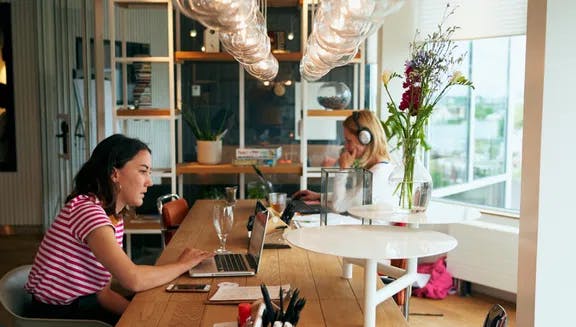
New insights into talent attraction and retention

Announcing IN Amsterdam’s new online tool for appointments
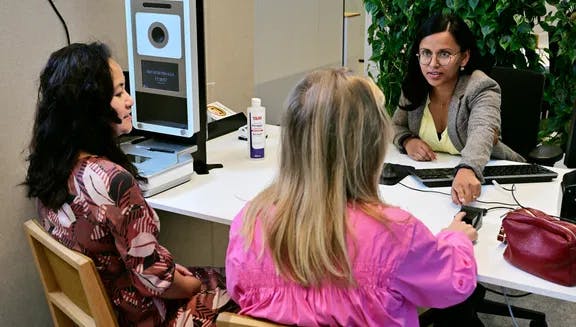
RNI Registrations available again at IN Amsterdam
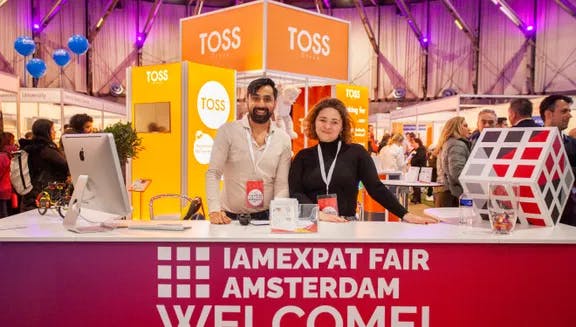
Easing into life in the Netherlands: the IamExpat Fair

Reductions to Dutch 30% tax benefit for foreign workers under review by Senate
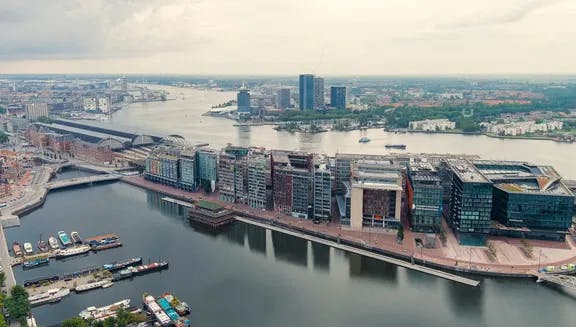
New Migration Monitor with interactive dashboard
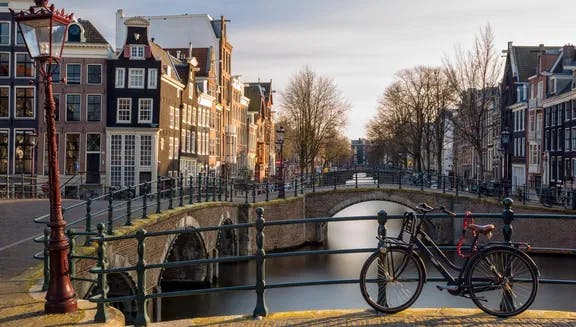
Changes in rules and regulations in the Netherlands for 2024
